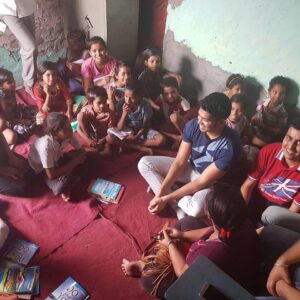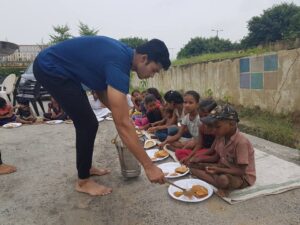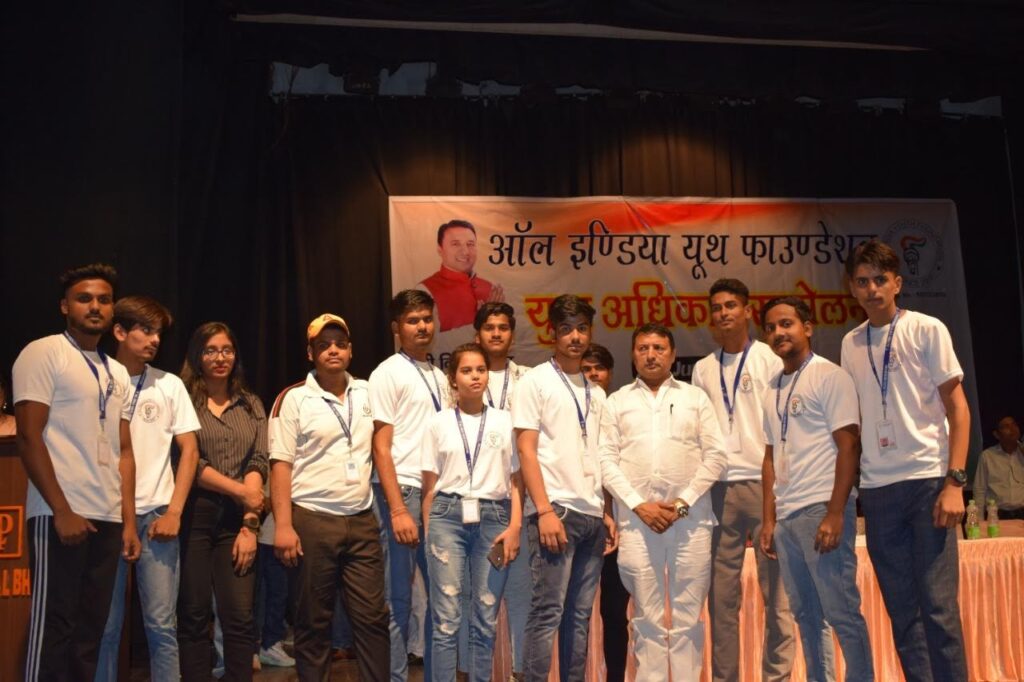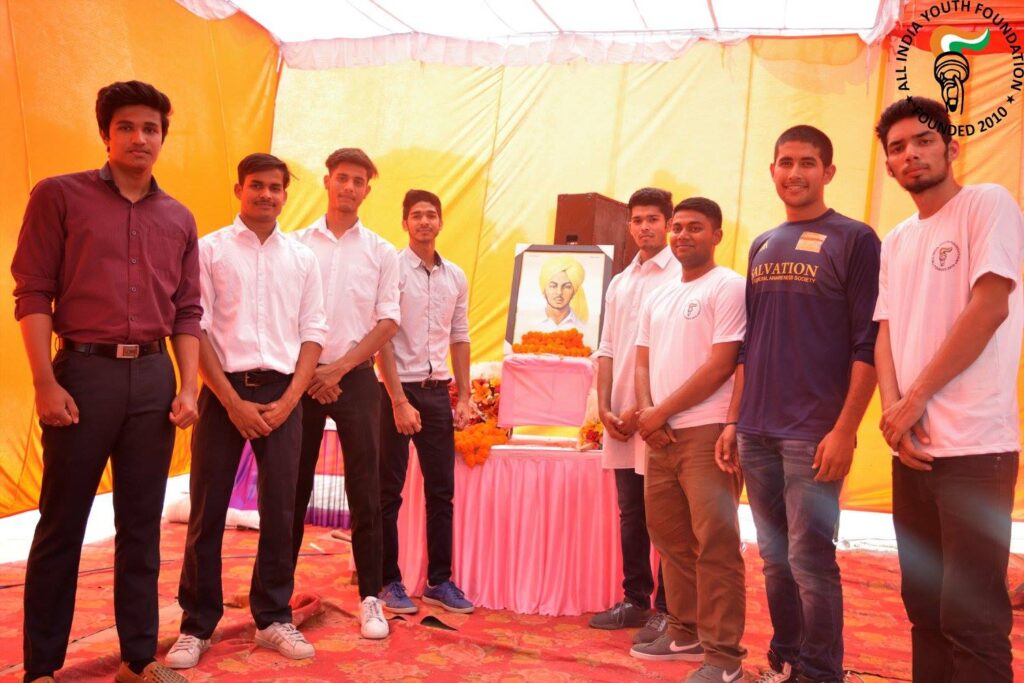The All India Youth Foundation’s approach to educating street children involves a comprehensive strategy aimed at addressing their unique needs and circumstances. Here’s an outline of how their program might operate:
 Identification and Outreach: Teams from the foundation actively engage in street outreach to identify and connect with street children. They establish trust through consistent and empathetic interaction, offering immediate support such as food, clothing, and medical assistance.
Identification and Outreach: Teams from the foundation actively engage in street outreach to identify and connect with street children. They establish trust through consistent and empathetic interaction, offering immediate support such as food, clothing, and medical assistance.
Shelter and Basic Needs Provision: Recognizing that many street children lack stable housing, the foundation operates shelters or safe spaces where children can access basic amenities like food, clean water, hygiene facilities, and a safe place to sleep
 Non-formal Education Centers: The foundation establishes non-formal education centers in areas with high concentrations of street children. These centers offer flexible schedules and individualized learning approaches to accommodate the diverse backgrounds and experiences of the children. Basic literacy, numeracy, and life skills are taught, alongside activities promoting creativity and critical thinking.
Non-formal Education Centers: The foundation establishes non-formal education centers in areas with high concentrations of street children. These centers offer flexible schedules and individualized learning approaches to accommodate the diverse backgrounds and experiences of the children. Basic literacy, numeracy, and life skills are taught, alongside activities promoting creativity and critical thinking.Vocational Training and Skill Development: Recognizing the importance of equipping children with practical skills for future employment and self-sufficiency, the foundation provides vocational training programs. These programs offer training in trades such as carpentry, tailoring, welding, computer skills, or entrepreneurship, depending on local demand and resources.
Psychosocial Support and Counseling: Trained counselors and social workers are available to provide psychosocial support to street children, addressing trauma, emotional well-being, and behavioral issues. Group counseling sessions and recreational activities are also offered to foster a sense of community and belonging.
Family Reintegration and Support: The foundation works to reunite street children with their families whenever feasible, providing family counseling, mediation, and support services to address the root causes of separation. In cases where family reunification is not possible, alternative care arrangements are explored, prioritizing the child’s safety and well-being.
Community Engagement and Advocacy: The foundation actively engages with local communities, government agencies, and other stakeholders to raise awareness about the rights and needs of street children. Advocacy efforts focus on influencing policies and practices to ensure access to education, protection, and opportunities for all children, regardless of their background.
Monitoring and Evaluation: The foundation implements robust monitoring and evaluation systems to assess the effectiveness of its programs and identify areas for improvement. Feedback from beneficiaries, staff, and partners is regularly collected and used to refine strategies and interventions.
Partnerships and Sustainability: Collaboration with government agencies, NGOs, corporate partners, and community-based organizations is integral to the foundation’s work. By leveraging resources, expertise, and networks, the foundation aims to create sustainable solutions that empower street children and their communities in the long term.
Through its holistic approach, the All India Youth Foundation strives to break the cycle of poverty and exploitation, providing street children with the education, support, and opportunities they need to build brighter futures.


